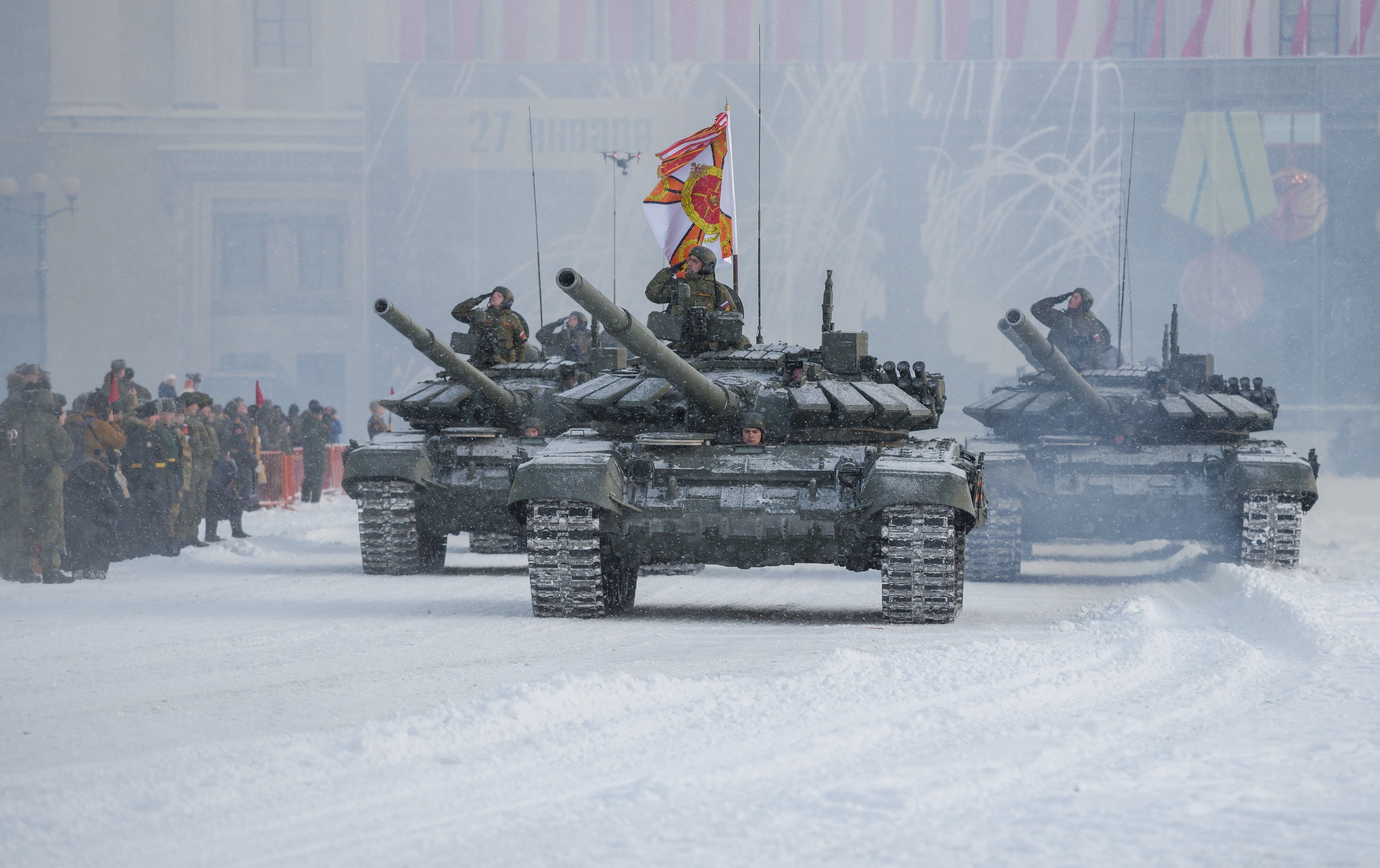Understanding the intentions of a potential adversary is one of the most important yet most difficult challenges that any statesman faces. Underestimating a state’s aggressive intent can discourage the prudent defensive preparations necessary to deter a war, as happened in the prelude to World War II. Overestimating it can produce a cycle of increasingly threatening military measures that spirals into a conflict neither side has sought, as happened in the run up to World War I.
Finding the sweet spot between these poles is critical in dealing with Russian intentions toward NATO, which is celebrating its 75th anniversary this week at a summit meeting in Washington. Getting the balance between deterrence and diplomacy right is particularly important given Russia’s massive arsenal of nuclear weapons, which makes the stakes of any descent into direct conflict between Russia and NATO potentially existential.
But to judge from NATO rhetoric, no such delicate balance is required: the Russia challenge is regarded as a modern reprise of Nazi Germany’s aggression, and the chief danger facing the alliance is thought to be the temptation to appease and thereby invite further Russian conquest. Hence President Biden’s recent assertion that if the Russian military is not stopped decisively in Ukraine, it will “move on to Poland and other places.”
Does Russia in fact harbor intentions of military conquest against NATO member states? Given the caution Putin has exercised so far in the Ukraine war in avoiding direct attacks on NATO members, the answer is probably no.
And there is a very understandable reason for this caution. As my colleagues Anatol Lieven and Mark Episkopos and I point out in a new Quincy Institute brief, one does not have to delve very deeply into the conventional military balance between Russia and NATO to realize that the Russian military would be badly outmatched in any war with NATO and would have good reason to believe that an attack on any individual NATO member would quickly turn into a conflict with the alliance as a whole.
As the Quincy brief explains, “NATO has a greater than three-to-one advantage over Russia in active-duty ground forces. … The alliance has a ten-to-one lead in military aircraft and a large qualitative edge as well, raising the possibility of total air superiority. At sea, NATO would likely have the capacity to impose a naval blockade on Russian shipping, whose costs would dwarf current economic sanctions. While Russia has clear superiority over individual NATO states, especially in the Baltics, it is extremely unlikely it could exercise this advantage without triggering a broader war with the entire NATO alliance.”
This assessment is based on more than a simple order of battle comparison between Russian and Western militaries. In actual combat, the Russians have struggled mightily to subdue a much less formidable Ukrainian military under much more favorable conditions than they would face in any war with NATO, where they would have longer supply lines, less familiarity with terrain and local conditions, and a decided disadvantage in military technology, particularly in air and naval forces. To imagine that Russia would initiate a war with NATO when it has shown little ability to conquer, let alone occupy and govern, the vast bulk of Ukrainian territory is to impute a degree of irrationality to the Kremlin well beyond what it has demonstrated to date.
This analysis is also consistent with Russia’s rhetoric. Moscow has repeatedly denied any plans to attack NATO territory, nor does it have any ostensible reason to do so, in sharp contrast to Ukraine, which it has long regarded as central to Russian history and culture and where it has long feared the possibility of a NATO military presence. “Russia has no reason, no interest — no geopolitical interest, neither economic, political nor military — to fight with NATO countries,” Putin said in late 2023. “Their statements about our alleged intention to attack Europe after Ukraine [are] sheer nonsense,” he claimed in early 2024.
To argue that Russia probably has neither cause nor capability to invade a NATO state is not to say that the risk of war between Russia and the West is insignificant, however. Just the opposite. Russia’s conventional military inferiority is likely to result in greater reliance on its nuclear arsenal to deal with the perceived threat from NATO, putting the continent’s security on hair-trigger for the first time since the Treaty on Intermediate-range Nuclear Forces went into force in the mid-1980s. Moreover, Europe features a number of potential battlegrounds where a new crisis between Russia and the West could flare, including Belarus, Moldova, the Balkans, Georgia, and Kaliningrad.
NATO’s powerful military deterrent cannot bring stability to Europe unless it is paired with diplomacy aimed at forging a mutually acceptable settlement in Ukraine and reestablishing rules of the game that help to avoid or manage new crises and prevent tensions between Russia and NATO from spiraling out of control.
Otherwise, we are headed neither toward a stable division of Europe nor toward a premeditated Russian invasion of a NATO state, but rather, as we point out in our new brief, toward a new period of precarious European instability: “a renuclearized and volatile hybrid confrontation between a West that is less united and self-confident than it appears and a Russia that sees its stakes in this confrontation as existential and will, therefore, have incentives to exploit and exacerbate internal Western vulnerabilities.”
To avert this outcome, NATO leaders need to be worrying less about repeating the mistakes of Neville Chamberlain and more about why Europe’s leaders sleepwalked into World War I.
















